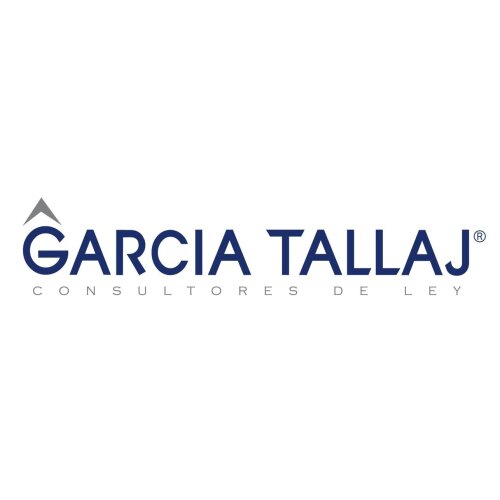Best Estate Planning Lawyers in Dominican Republic
Share your needs with us, get contacted by law firms.
Free. Takes 2 min.
Or refine your search by selecting a city:
List of the best lawyers in Dominican Republic
About Estate Planning Law in Dominican Republic
Estate planning in the Dominican Republic involves the management and distribution of an individual’s assets after they pass away. It includes creating a will, setting up trusts, and arranging for the care of minor children. The process is crucial for ensuring that assets are distributed according to the deceased’s wishes and in a manner that minimizes taxes and legal complications for heirs. Due to the complexity of estate planning laws and the unique legal landscape in the Dominican Republic, it is advisable to seek professional legal assistance to navigate this process effectively.
Why You May Need a Lawyer
Several situations might necessitate the assistance of a lawyer in the estate planning process:
- Complex family situations: If you have a blended family or dependents with special needs, legal guidance can help structure your estate plan accordingly.
- High-value estates: Estate planning for high-net-worth individuals may require strategies to mitigate estate taxes and ensure asset protection.
- Non-citizen status: If you are a foreign national with assets in the Dominican Republic, legal advice will be crucial for navigating property and inheritance laws.
- Business ownership: Those who own a business in the country will need a succession plan, which involves legal documentation to ensure the smooth transfer of business interests.
- Language barriers and documentation: Legal documents are often drafted in Spanish, and a lawyer can assist with translation and interpretation to ensure your wishes are accurately represented.
Local Laws Overview
Estate planning in the Dominican Republic is heavily influenced by local laws. Key aspects include:
- Inheritance Laws: The Dominican legal system follows a forced heirship concept, which obligates a portion of the estate to be distributed to certain family members.
- Wills: Wills must meet specific legal formalities to be valid, including the presence of witnesses and notarization under Dominican law.
- Trusts: While not as commonly used as in other jurisdictions, trusts can be established, but the legal framework requires careful consideration.
- Tax implications: Inheritance tax and other estate-related taxes can impact the distribution of assets, and tax planning is a critical element of the estate planning process.
Frequently Asked Questions
What is the importance of having a will in the Dominican Republic?
A will ensures that your assets are distributed according to your wishes and can prevent potential disputes among heirs. It can also expedite the probate process.
Can foreigners own property and include it in their estate plan in the Dominican Republic?
Yes, foreigners can own property in the Dominican Republic and include it in their estate plans. However, legal advice is recommended to navigate any restrictions or requirements.
What happens if I die without a will?
If you die intestate (without a will), your assets will be distributed according to Dominican intestacy laws, which may not align with your personal wishes.
Are handwritten wills valid in the Dominican Republic?
Yes, holographic (handwritten) wills can be valid if they meet specific legal requirements, including signature and dating by the testator, without any formal witnesses.
What are the tax implications of transferring assets to heirs?
Inheritance tax may apply, and the rate can vary depending on the relationship between the heir and the deceased. Legal advice can help manage these taxes efficiently.
Who can be appointed as an executor of an estate?
An executor can be a trusted individual, family member, or a legal professional assigned in the will to manage the estate's distribution following the deceased's instructions.
Is estate planning confidential?
Yes, consultations with a lawyer regarding estate planning are confidential, ensuring that your personal and financial information is protected.
How can trusts be utilized in estate planning?
Trusts can be used to manage and distribute assets during and after your lifetime, often providing tax benefits and protecting beneficiaries.
Can I make changes to my will once it's made?
Yes, you can amend your will through a codicil or create a new will entirely, provided it meets the legal requirements in the Dominican Republic.
How is the value of an estate determined?
The estate's value is determined by summing up all the deceased's assets while subtracting any debts or liabilities, often requiring professional valuation services.
Additional Resources
Several resources can assist you in estate planning in the Dominican Republic:
- Office of the Attorney General: Provides information on civil matters, including estate planning and inheritance laws.
- Notarial Colleges: Offer services related to the creation and registration of legal documents, such as wills and trusts.
- Local Law Firms: Many firms specialize in estate planning for both residents and non-residents.
- Financial Advisors: Professionals who can help with tax planning and asset management within your estate plan.
Next Steps
If you find yourself needing legal assistance with estate planning in the Dominican Republic, consider taking the following steps:
- Research: Begin by gathering information online and using the recommended resources to develop a basic understanding of estate planning.
- Consult with Professionals: Schedule consultations with a qualified estate planning attorney to discuss your specific needs and objectives.
- Organize Your Affairs: Compile a comprehensive list of your assets, liabilities, and any personal considerations that should be addressed in your estate plan.
- Create Legal Documents: Work with your chosen legal professional to draft and finalize your will and any accompanying documents.
- Review Regularly: Revisit your estate plan periodically or after significant life events to ensure it remains current and effective.
Lawzana helps you find the best lawyers and law firms in Dominican Republic through a curated and pre-screened list of qualified legal professionals. Our platform offers rankings and detailed profiles of attorneys and law firms, allowing you to compare based on practice areas, including Estate Planning, experience, and client feedback.
Each profile includes a description of the firm's areas of practice, client reviews, team members and partners, year of establishment, spoken languages, office locations, contact information, social media presence, and any published articles or resources. Most firms on our platform speak English and are experienced in both local and international legal matters.
Get a quote from top-rated law firms in Dominican Republic — quickly, securely, and without unnecessary hassle.
Disclaimer:
The information provided on this page is for general informational purposes only and does not constitute legal advice. While we strive to ensure the accuracy and relevance of the content, legal information may change over time, and interpretations of the law can vary. You should always consult with a qualified legal professional for advice specific to your situation.
We disclaim all liability for actions taken or not taken based on the content of this page. If you believe any information is incorrect or outdated, please contact us, and we will review and update it where appropriate.
Browse estate planning law firms by city in Dominican Republic
Refine your search by selecting a city.














